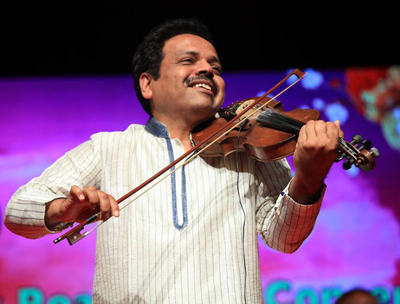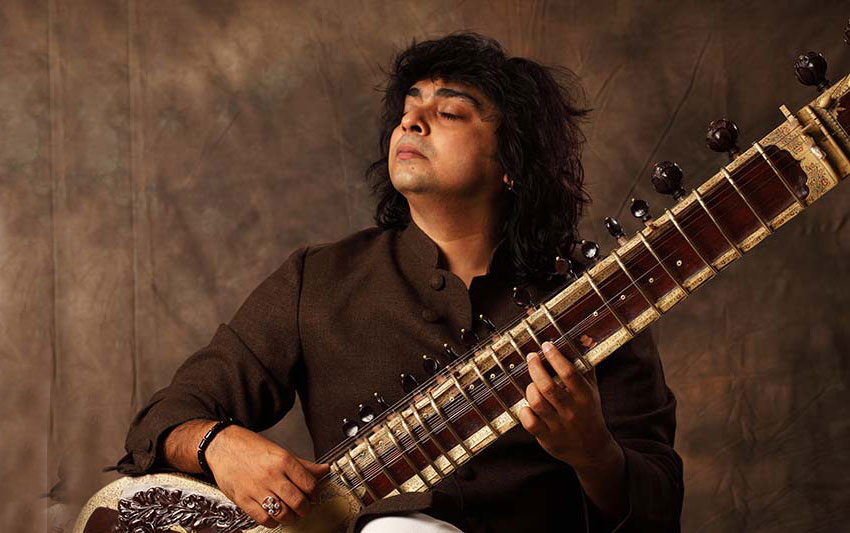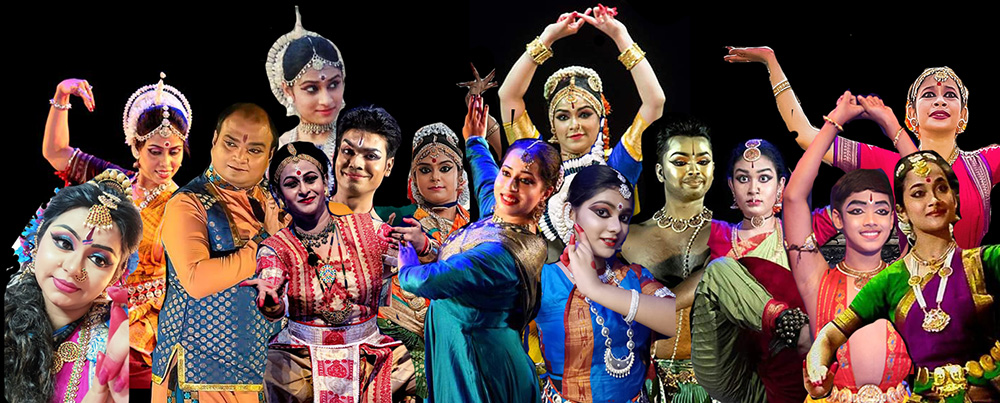One of the most intriguing features of Indian music as a whole is its belligerent diversity of genres. However, if you plead this diversity as the cherry on the cake, you would also find a dearth of alibis to mitigate the confusion that is created in the business side of things as a result of this diversity. Eminent violin player, music consultant and curator, company secretary and a corporate advisor, Mr. Ratish Tagde points out that there are four segments that comprise the music industry in India – the business of music, the mediation agencies, the Government of India and the consumers of music. Being a musically diverse country and largest culture-loving population only next to China, every individual music genre offers a huge business potential hence creates scope for robust economic gains too for musicians and other stakeholders. “However, due to lack of synchronization among all these four segments in India, all stakeholders are suffering,” says Tagde.

Tagde is the president of the Musicians’ Federation of India, an affiliate of the Paris based organisation, the International Federation of Musicians (FIM). FIM was founded in 1948 with the aim to protect and further the economic, social and artistic interest of musicians represented by its member unions and has affiliations with 70 countries from all over the world. In the west, musicians have long been represented by unions and there exists a lot of awareness about musicians’ rights and the legalities that entwine original work, copyright issues, distribution of revenues and the proper rules and regulations that are related to the business side of the music profession.
The laws pertaining to copyrights and royalties are still evolving in India therefore like the west, proper and transparent structure to string together the commercial aspects and copyrights related issues of the non-film music industry are still under development stage. Genres like Indian Classical, Folk etc. do exist as a huge industry of performers, concert organizers and gurus, and need of the hour for all is to come together for brainstorming on this subject. Another observation Tagde expressed is that the passion alone will not help the genre to grow, the stakeholders also need to focus on various commercial aspects as well.
Tagde has a ring to his voice as he informs about the first of its kind seminar he is organizing jointly with the FIM on the 2nd and 3rd Dec 2019. “We will be discussing certain topics of utmost importance for all stakeholders of the Indian Music Industry,” says he. What makes the seminar even more meaningful is the fact that there will be a mutual exposure of the Indian industry and the western industry to each other. The basic idea and importance for such a seminar is also to avail the Indian industry with a picture of the structure that unites the aforementioned four segments of the commercial aspects of the Indian music industry. A structure like the music industry in the west, if implemented in India, will take care of the larger interests of musicians, performers, lyricists, organizers and every other person related to the industry.
“It was only last week that IPRS filed an FIR against one of the biggest Indian film producers for the disparity in revenue distribution of songs to artists,” says Ratish Tagde. According to him, this is because of the existence of many anomalies in the way artists and organizations carry out their activities. The seminar will be attended by at least 25 foreign delegates from the European Union, UK, Australia, USA, Canada, Japan, Thailand, Kenya and some other countries. In addition to that, IMI, WIPO, IPRS, ISRA, IFPI, CINTAA, CMA, Copyrights Board (GOI) will also be participating which will give the Indian counterparts a huge opportunity to absorb the information and workings of its western counterparts which may be implemented towards the benefit of the entire industry.
 Ratish Tagde is also the first Indian musician who started the only channel, Insync Music, which is wholesomely dedicated to all forms of Indian music except Bollywood. It is the first channel in which, Indian Classical Music & dance and folk music & dance are showcased. This effort has been lauded by many big names and audiences alike. The classical music segment is still considered to be under the old era of ‘Rajyashraya’ whereas the stakeholders must focus on proving its standalone commercial viability to go to the next level. The live example of the existence of inherent commercial valued in classical music is the inclusion of Classical Music based performances in reality shows like Indian Idol etc. These shows give proper respect and position to the contestants who are classically trained. This shows that the commercial world understands and acknowledges the prominence of classical music in overall music presentation. This is the clue. If music has to develop on the business front as an industry, there has to be compatibility of thoughts pertaining to the larger picture among the Indian musicians who belong to the genres of Hindustani Classical, Carnatic Classical, Folk, Ghazal, Devotional et al.
Ratish Tagde is also the first Indian musician who started the only channel, Insync Music, which is wholesomely dedicated to all forms of Indian music except Bollywood. It is the first channel in which, Indian Classical Music & dance and folk music & dance are showcased. This effort has been lauded by many big names and audiences alike. The classical music segment is still considered to be under the old era of ‘Rajyashraya’ whereas the stakeholders must focus on proving its standalone commercial viability to go to the next level. The live example of the existence of inherent commercial valued in classical music is the inclusion of Classical Music based performances in reality shows like Indian Idol etc. These shows give proper respect and position to the contestants who are classically trained. This shows that the commercial world understands and acknowledges the prominence of classical music in overall music presentation. This is the clue. If music has to develop on the business front as an industry, there has to be compatibility of thoughts pertaining to the larger picture among the Indian musicians who belong to the genres of Hindustani Classical, Carnatic Classical, Folk, Ghazal, Devotional et al.
Some of the important issues that will be discussed in the seminar are :
– Rights of performers in India and neighbouring countries
– State of streaming and broadcasting markets in Asia
– Curated playlist – Are remuneration models adequate?
– Distribution and diversity – pro-rata vs user-centric
– 20+ years after: does the WPPT deliver?
– Featured and non-featured performers: different needs?
– New subscription models: Increasing revenues through audience segmentation
The seminar will be held at the IMC, Churchgate, Mumbai and enthusiasts willing to attend may register for FREE below:











